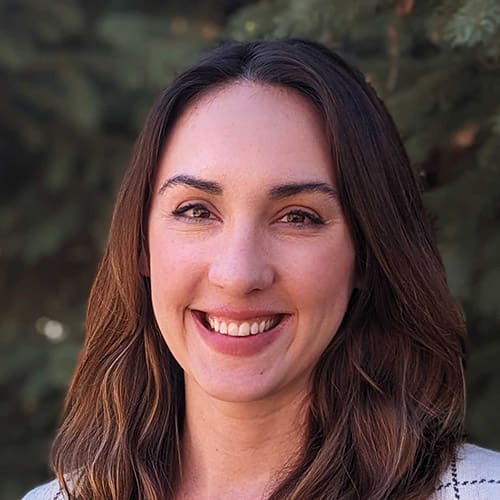
30 Essential Questions to Ask Aging Parents: The Complete Checklist

There are 30 essential questions you should ask your aging parents. “Learning what matters most to your loved one in terms of health, personal values and beliefs, financial matters, and overall quality of life is important for caregivers and loved ones to understand and prioritize throughout the aging process,” says Amy McLoughlin, a senior living expert with A Place for Mom. You’ll want to ask your parents about their legal documents, finances, health and safety, living arrangements, and end-of-life wishes. These example questions can help you and your parents prepare for the future.
Let our care assessment guide you
Our free tool provides options, advice, and next steps based on your unique situation.
Key Takeaways
- Help your parents get their affairs in order. Have detailed conversations before a health emergency so you can ensure your parents’ wishes are met.
- Ask about important documents. Know where to find their legal, financial, and end-of-life paperwork.
- Understand their current health conditions and living arrangements. Help your parents start planning now for downsizing or moving to senior living.
- Approach these topics respectfully. Explain why these conversations are in your parent’s best interests.
Legal documents
Whether an unexpected illness leads to hospitalization or a fall requires rehabilitation at a nursing home, it’s vital that your parents have their essential legal documents in order.
Questions to ask
1. Do you have a durable power of attorney?
2. Do you have a will or a living trust?
3. Have you made sure these documents are current?
4. Where do you keep these documents?
5. Have you considered talking to an elder law attorney?
Amy McLoughlin, a senior living expert with A Place for Mom, suggests framing this conversation around your parents’ commitment to their family.
Having this conversation can give them “peace of mind knowing that they’ve preempted any potential family conflicts around these decisions,” Amy says.
Make sure you know how to access these important legal documents before an emergency. Waiting until the last minute to establish a durable power of attorney can prevent a senior from receiving timely care.
And while it’s not fun to think about, don’t wait until your parent dies or can no longer make decisions for themselves to ask about a will or trust.
Finances
“Talking about money can be a source of stress and disagreement,” McLoughlin says. “I think encountering some resistance is typical.”
Even so, it’s important to know these key pieces of information about your parents’ finances in case of an emergency.
Questions to ask
6. Is someone advising you on financial matters?
7. Have you saved for retirement or senior living?
8. Do you know how much senior living costs in your area?
9. How do you plan to pay for retirement or senior living expenses?
10. Have you paid off your house, car, credit cards, or other debts?
11. Are you enrolled in Social Security?
12. Do you have long-term care insurance?
Only about 34% of seniors surveyed by A Place for Mom felt prepared to pay for senior living, according to our 2023 report on the cost of long-term care and senior living.
The national median cost of assisted living is $4,807 per month, and in some regions, it’s much higher.[01] This can deplete a senior’s nest egg rapidly, so talking to your parents about their finances early on is important.
Only about 34% of seniors surveyed by A Place for Mom felt prepared to pay for senior living.
If your parents don’t want to share this information, respect their boundaries, but also explain why you’re asking. You want to ensure they’re taken care of for the rest of their lives, and in order to help, you need to know where they stand financially.

Let our care assessment guide you
Our free tool provides options, advice, and next steps based on your unique situation.
Health and safety
As your parents age, their health and safety will naturally become a bigger issue. Making sure that you understand their current health conditions and medications, and that you’re familiar with their care team, can help you navigate emergency health situations.
Safety for seniors also goes beyond health care. Asking your aging parents about their current lifestyle, household management, and environment can go a long way in preventing accidents.
Questions to ask
13. Do you visit the doctor regularly?
14. Do you understand why you’re taking the medicines you’ve been prescribed?
15. Who are your current physicians, and what are their contact details?
16. Do you feel like you can navigate your house without tripping, slipping, or falling?
17. Have you recently had any accidents in the house, like leaving an oven on?
18. When did you last check whether your smoke detectors and carbon monoxide alarms are working properly?
Your parents may see several specialists in addition to a primary care physician. If a parent becomes hospitalized, information from one of these doctors could be critical.
On the other hand, some seniors have the opposite issue. They may resort to internet searches on Google or WebMD instead of a regular doctor’s visit.
Consider going to a few doctor’s appointments with your parents to get to know their physicians. This can also help your parents see that you’re interested in their well-being and want to be involved.
Amy McLoughlin, senior living expertThe most important thing is to have a conversation before an emergency happens.
Some seniors, however, can be suspicious of questions about their health, thinking they’ll lose some of their autonomy if they admit to having health or safety problems.
“This resistance can come in the form of denying that there is a present need for help, even when it’s obvious,” McLoughlin says.
Do your best to frame these questions as information you need to help them continue living their preferred lifestyle for as long as possible.
Read more:10 Health Tips for Seniors
Living Arrangements
Get your parents involved in conversations about living arrangements early, and look at options before the need arises. This allows your parents to voice their own preferences. Typically, it takes a long time — months or even years — to downsize or move into senior living.
Questions to ask
19. If you can no longer take care of yourself, have you thought about where you’d prefer to live?
20. Do you feel like you understand your senior living options?
21. If you had to move into a senior living community, would you rather stay close or move to a different city or state?
22. Do you have an expectation that you’ll move in with us or that we’ll move in with you if your care needs increase?
Senior living options
Your parents may not know their senior living options well enough to make a decision, but you can help them explore some. If they live in or near a metro area, they likely have access to assisted living facilities, independent living communities, board and care homes, and memory care facilities.
Home care is another option for seniors who need extra assistance but don’t want to move from their house. Consider their financial situation, and explore ways to pay for care to help them make a plan.
A Place for Mom’s Senior Living Advisors can help you identify quality senior living communities and home care providers. To jumpstart your planning, you can also compare your parent’s current cost of living with the costs of assisted living and in-home care in your area using our handy Senior Living Cost Calculator.
Lastly, you can search A Place for Mom’s website for any city or state to get a picture of what senior living looks like in locations of interest. We have over 350,000 reviews on our site from real residents and family members to give you a sense of what actual communities in your area are like and may offer.
FROM THE EXPERT
Ideally, you should begin having open communication about aging with your parents before their health starts declining. Everyone being on the same page with a clear understanding of what matters most will alleviate a ton of fear for everyone. Just as it’s never too early, it’s also never too late.

Talk with a Senior Living Advisor
Our advisors help 300,000 families each year find the right senior care for their loved ones.
End of life
No one enjoys end-of-life conversations, but you should know your parents’ preferences well before a decline.
Do your best to start the conversation in a comfortable setting when your parents are feeling good or relaxed. Consider letting them know a few days or weeks in advance that you’d like to discuss this to give them time to think.
Be sure to frame the purpose of the conversation around making sure your parents’ wishes are heard and respected.
Questions to ask
23. Have you thought about what you’d want your end of life to look like? If so, can you describe it?
24. Do you have an advance health care directive, also known as a living will?
25. Would you want a ventilator or feeding tube to keep you alive, even in an irreversible coma?
26. Do you want CPR if your heart stops, even if you’re terminally ill?
27. If the situation allows for it, would you like to be in a hospice facility or receive hospice treatment at home?
28. What would you like us to do with your belongings?
29. Do you have a preference about what we do with your body when you die?
30. Do you have any requests for the funeral or celebration-of-life ceremony?
When to have these conversations
Consider reaching out to your parents to ask how, where, and when they’d like to discuss these topics.
“The most important thing is to have a conversation before an emergency happens,” McLoughlin says. “Normalizing planning for this chapter of life shows your loved ones that you care and that you want to work together to make the best decisions for both your futures.”
If at least one of the following statements is true, consider making time to talk to a parent about these topics within the next few months:
- Your parent is over 75 years old.
- Your parent recently had a health or safety scare.
- Your parent has one or more serious health conditions.
- Your parent has reached out to you about one of these topics.
- Your parent is showing interest in downsizing or moving into a senior living community.
- Your parent’s spouse has recently passed away.
To avoid family disputes, be sure to keep your siblings in the loop, as well.
“If family dynamics are in play, there is a lot of benefit to bringing in an objective third party professional, like a Senior Living Advisor, to guide the conversation and educate everyone on all the options available,” McLoughlin says.
A Place for Mom. (2024). A Place for Mom proprietary data.
The information contained on this page is for informational purposes only and is not intended to constitute medical, legal or financial advice or create a professional relationship between A Place for Mom and the reader. Always seek the advice of your health care provider, attorney or financial advisor with respect to any particular matter, and do not act or refrain from acting on the basis of anything you have read on this site. Links to third-party websites are only for the convenience of the reader; A Place for Mom does not endorse the contents of the third-party sites.
Make the best senior care decision
Make the best senior care decision